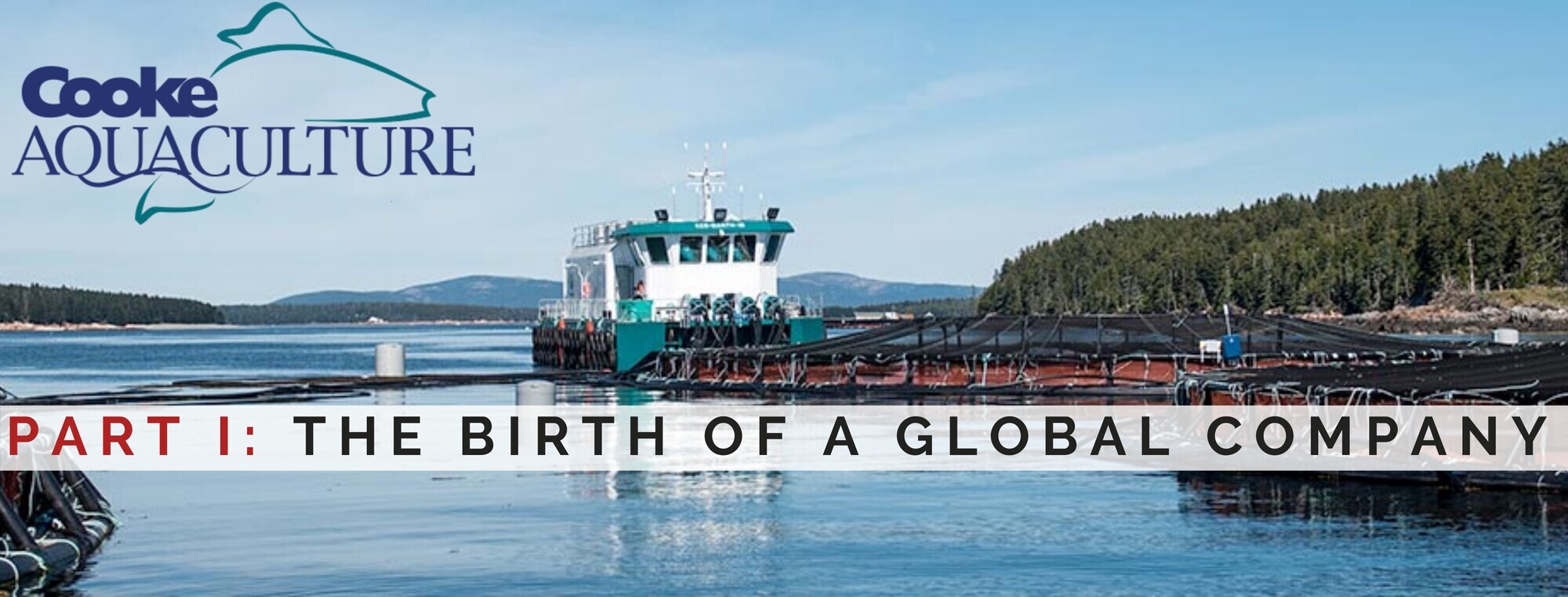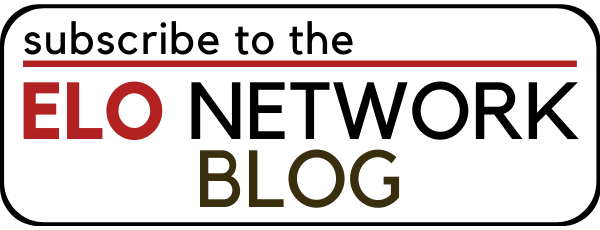
Rick Goossen Interview with Glenn Cooke, CEO, Cooke Aquaculture (Part I): The Birth of a Global Company
Glenn Cooke is CEO of Cooke Aquaculture and The Cooke Family Group of Companies based in Blacks Harbour, New Brunswick. This interview was conducted by Rick Goossen, Chairman, ELO Group as part of the ELO Forum Toronto Online held on November 23, 2020. This is the first of a series of four blog posts.
RG: So just to start off, could you explain what your company does?
GC: We are a global seafood leader. We do aquaculture as a big chunk of our business. We farm salmon in multiple countries around the world. We farm sea bass and sea bream in Spain and we farm shrimp in Central America. We are also a large fishing company. We have operations in Argentina, the US and Canada. We operate in 10 countries around the world with $2.35 billion in sales and close to 10,000 employees. We have built this company since 1985 and we're quite proud of it.
RG: Please explain what you mean by “fish farming.”
GC: We basically mimic the life cycle of the species that we are farming. For instance, salmon will start out as fish eggs in freshwater and we raise them to what we call a small size. Then they go to sea water into very large pens in the ocean where we raise the fish. We have to provide a special diet for the fish. Salmon are one of the best protein converters in the world.
We have huge amounts of inventory swimming around the world at any given time. We then harvest those fish and process them into added-value products and ship them all over the world. A lot of our customer base can be shipped to within 24 hours. So, for example, we get a phone call and within 24 to 48 hours that product is being harvested and delivered somewhere in the world. While we are a local company, we are certainly a global company, too.
RG: Do you also do natural harvesting of salmon, or is it all fish farming?
GC: Atlantic salmon can only be farmed. There are no wild populations big enough for a commercial harvest. There are, however, commercial harvests of Pacific salmon in Alaska, certain places in Canada and in Russia. We have plants in Alaska that process products and ship them out frozen. Most of our Atlantic salmon are sold fresh to the market.
RG: With respect to the global salmon industry what percentage would be farmed?
GC: Now globally it's probably 95% of the salmon produced around the world are farmed.
RG: As your company expanded, you have expanded into other seafood products. What are the differences between wild stock and fish farming?
GC: There are quite different dynamics. In our case, with salmon farming at any given time we could have close to a billion dollars of swimming live inventory. Whereas with the wild side, on the other hand, you are focused on harvesting and processing and selling that product, either fresh or frozen. Of course, there is a lot less inventory.
RG: What is aquaculture?
GC: Aquaculture is very much like farming on land. It’s a similar concept to having cattle or wheat in the field. With aquaculture—farming in the sea—you are more susceptible to natural disasters, storms and other weather-related events. So, the aquaculture side is more like agriculture than it is the wild fisheries
RG: It sounds like aquaculture is not only the way of the future, but the future has arrived.
GC: There are huge global multinational public companies in the salmon farming business. We’re private and one of the top 10 in the world that actually farm salmon. By contrast, the wild fisheries aren’t growing; instead, they have a steady volume. So, it's farmed species, where growth is occurring, that are going to feed the world. If you want to feed people healthy seafood, it has to come from farmed species.
RG: How would you respond to people who may have a negative view of fish farming due to environmental concerns?
GC: I would explain that farming on land has obviously been done for thousands of years. Likewise, but more recently, farming the ocean has been done successfully for over 50 years. It's very similar to farming on land. Salmon, for example, is a very good protein converter, compared even to cattle or hogs.
I grew up in Charlotte County, New Brunswick. I'm the fifth generation that's been in Charlotte County and lived off the water. We have to provide for five or six or 10 more generations of Cookes to do the same thing. So maintaining the natural environment in a safe and sustainable way is very important for me. We have been successful. We have maintained the environment and there's no damage caused by salmon farming. I think the key is that we have been sustainable for a long period of time. We are monitored by a lot of outside sustainability groups.
RG: What do you mean by sustainable?
GC: Future generations of our family can be involved in aquaculture without any negative effect on the environment that can’t be mitigated. It's important to us that we do that in a sustainable way that we're not making the world worse—we’re making it better.
RG: Why did you expand beyond your base in New Brunswick?
GC: We reached our capacity to grow in Atlantic Canada and in the State of Maine, USA. We looked at other places around the world for a couple of reasons. We're a family company so we had to look at a way to mitigate our risk. We didn't want our eggs all in one basket. We started looking at different countries around the world. We got involved in Chile and then we got involved in Spain with sea bass and sea bream. We were able to diversify both our products and geographically. In the case of Spain, we are still in fish farming, but we are raising sea bass and sea bream. We then got involved in Scotland salmon farming. Next, we moved into the wild fisheries.
RG: So, what are the plans for the company 5-10 years out? At $2.35 billion, that's a big number, but from your standpoint, as an entrepreneur, are you just getting started?
GC: Yes, absolutely, we are just getting started. We want to keep growing the Company while keeping it privately held. A lot of our growth is organic, although we do a lot of acquisitions. We keep diversifying our portfolio with different regions and different species.
As a family, we don't take out dividends. We reinvest in the Company. We built this Company based on retained earnings and not with outside investments. It's important that we keep growing. We create a lot of jobs. We’re involved with a lot of causes around the world. We take the well-being of our employees very seriously whether they are in Chile or Central America or Canada or the USA or Europe.
We want to not only be sustainable in what we grow, but we want to make sure that our employees can provide for their families and that we improve the communities in which we operate. A lot of the communities around the globe that we’re involved in are small local fishing areas in smaller communities. We're a big employer in a lot of those areas, so it's important for us that we are sustainable financially and environmentally and obviously to benefit our employees.
